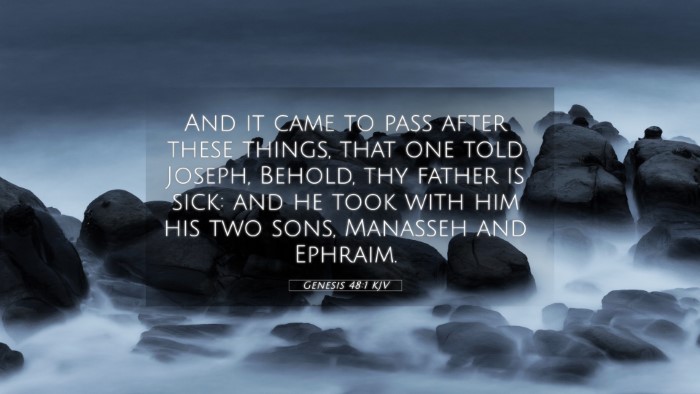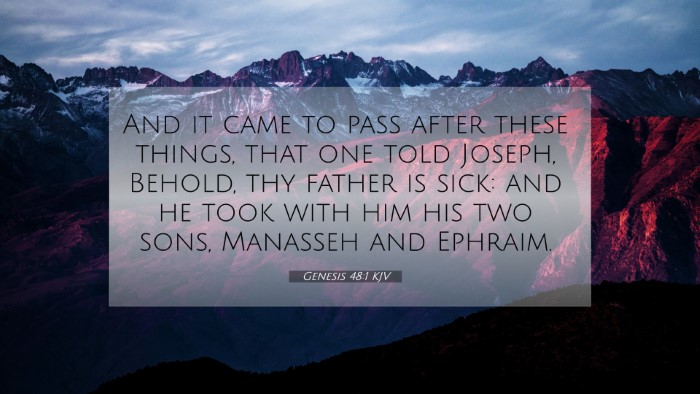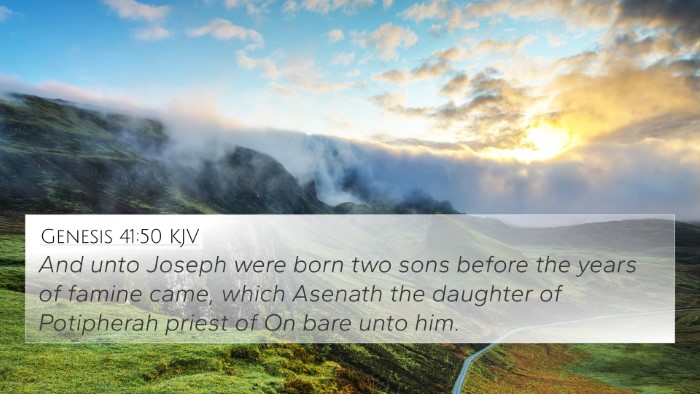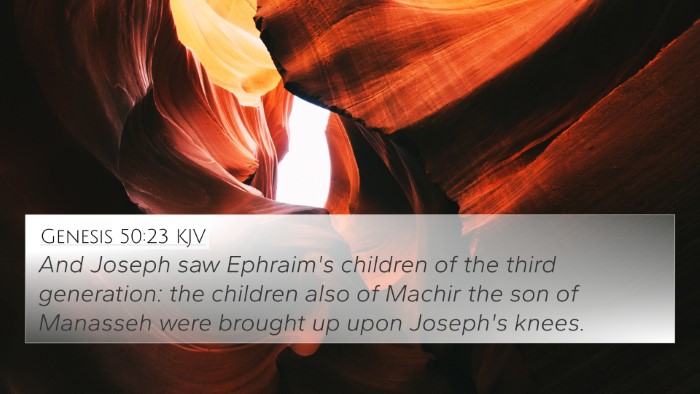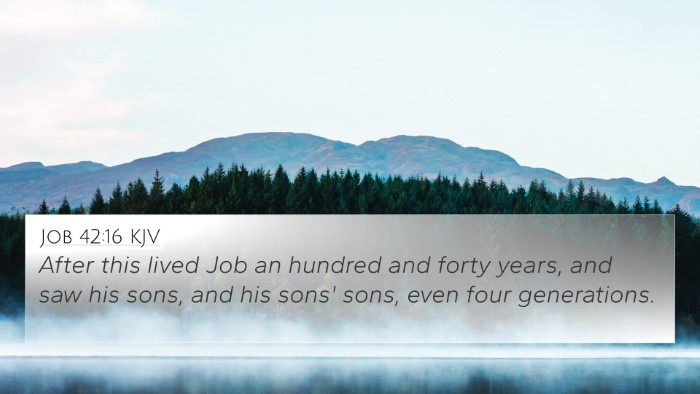Understanding Genesis 48:1
Genesis 48:1 (KJV): "And it came to pass after these things, that one told Joseph, Behold, thy father is sick: and he took with him his two sons, Manasseh and Ephraim."
Summary of Genesis 48:1
This verse introduces a significant moment in the life of Jacob (also known as Israel) as he is on his deathbed and desires to bless his grandsons, Manasseh and Ephraim, the sons of Joseph. It serves as a prelude to the blessing that embarks on a theme of continuity of the covenant through generations.
Commentary Insights
Matthew Henry's Commentary
Henry highlights the importance of familial relationships in Genesis 48:1, emphasizing Joseph's readiness to bring his sons to Jacob. This indicates not merely an act of duty but a heart motivated by love and respect for his father. The sickness of Jacob signifies a pivotal moment for imparting blessings and wisdom, and Joseph’s act reflects his understanding of God’s providence in their family’s history.
Albert Barnes' Notes
Barnes elaborates on the historical context, noting how this call to Joseph represented a divine arrangement linking the patriarchs' blessings with future tribes of Israel. He points out that Joseph took both sons to receive Jacob’s blessing, which speaks of Joseph’s proactive approach in ensuring his sons would be recognized and favored by their grandfather, signifying their importance in God’s chosen lineage.
Adam Clarke's Commentary
Clarke notes that the command to bring Manasseh and Ephraim is critical in understanding the future of Israel; by blessing them, Jacob adopts them, placing them on equal footing with his own sons. Clarke suggests that this act reaffirms God's promises to Jacob and serves as an early indication of the roles that these tribes would play in the nation of Israel.
Bible Cross References
- Genesis 17:5 - God's covenant with Abraham, which establishes the lineage.
- Genesis 49:1 - Jacob's prophetic blessings over his sons and their descendants.
- Exodus 1:1 - A record linking Joseph and his family to the growth of Israel in Egypt.
- Hebrews 11:21 - A reflection on the faith of the patriarchs, including Jacob's blessings.
- Luke 3:23-38 - The genealogy of Jesus, tracing back to Jacob and his sons.
- Matthew 1:1-16 - The lineage of Christ, showing the importance of Jacob's descendants.
- Joshua 14:4 - The inheritance distribution among the tribes, reflecting the future of Ephraim and Manasseh.
Thematic Connections
The themes present in Genesis 48:1 establish a narrative of blessing that resonates throughout other scripture. It illustrates God's unwavering commitment to the covenant made with Abraham and carried through his descendants. The event is a significant marker for Jewish identity and heritage, establishing a precedent for future generations. It serves as an invitation for believers to reflect on the continuity of God's promises.
Tools for Cross-Referencing
For a deeper understanding of Genesis 48:1, employing various tools for Bible cross-referencing can aid in exploring connections. Utilize a Bible concordance or a cross-reference guide to identify themes that interplay with familial relationships, divine blessings, and the establishment of the tribe of Israel.
Practical Application
Genesis 48:1 invites readers to consider the significance of family and heritage in their spiritual journeys. Reflecting on how past generations influence and contribute to our understanding of God’s work in our lives can deepen one’s faith. Through a Bible cross-reference system, one can explore how the themes of blessing, lineage, and divine favor manifest throughout both the Old and New Testaments.
Conclusion
In summation, Genesis 48:1 is a pivotal verse that not only sets the stage for Jacob's blessings but also connects to the broader narrative of the Israelite people. By recognizing the interconnectedness of Biblical texts, believers can appreciate the rich tapestry of God's plan through scripture. Utilizing cross-referencing methods opens an array of thematic explorations that enrich our understanding of God’s word.

